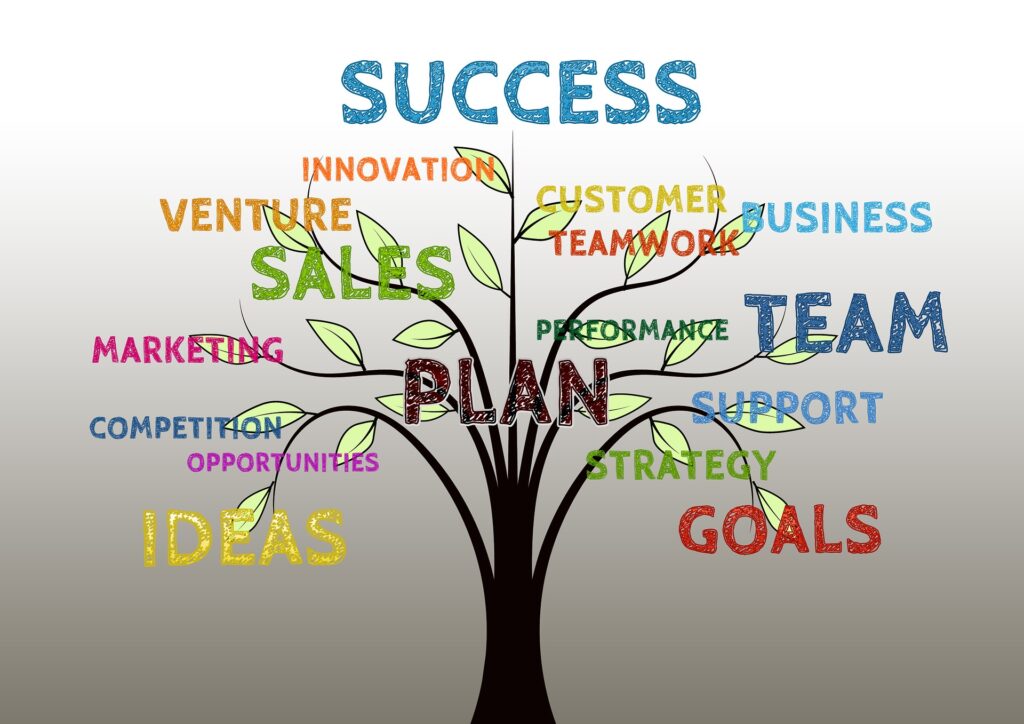Business Seasons Change, But Research Keeps You Steady
In the height of the British Summer and with most schools now having broken up for the long break, many thoughts are turning to the annual summer holiday. Whether staying at home or taking a holiday away, the summer and the potential it brings for a break forms part of the annual cycle.
As well as business cycles, companies also go through annual cycles, where certain activities are planned and undertaken at specific times of the year. Whether it is strategic planning to kick start the year or end of year performance assessments, these activities need to be seen as part of the whole process and not independent activities.
Market research supports the annual cycle over the business year. Looking just to next month, September is an ideal time to be thinking about research to support business planning that may be starting in the first quarter of 2026.
A reasonable lead in time is needed to define the research objectives for research, plan the process, undertake the research, analyse and interpret the findings and apply it to the business planning.
Avoiding the knee jerk reaction to realising the information needed for business planning is not easily accessible at the time it is most needed can be avoided by taking this time to plan in advance.
Start Strong: Use Insight to Shape Strategy
Having established the need to start research in reasonable time before business planning, its importance to informing business direction is key.
What are the business objectives for the coming year? Is the business looking to enter new markets, develop new products, take competitor market share, or even maintain performance in a volatile market.
Market research is crucial to both inform objectives and then support the development of effective business strategies. It provides insights into customer preferences, market trends and competitive landscapes.
With this knowledge, research supports informed decisions about such areas as; product development, marketing campaigns and overall business direction. By understanding the target market and potential challenges, businesses can work to minimise risks and maximise the potential for success at the start of the planning cycle.
Keep Listening: Customer Feedback is Your Mirror
Once the business plan has been produced, informed by relevant insight and its application, market research does not rest on its laurels.
Market research will continue to support the business throughout the year.
Customer research, for example, will establish whether the business plan is meeting its objectives with a range of measures; customer loyalty, satisfaction with products and services, word of mouth promotion and customer retention.
It will support customer relationships through the understanding of customer needs and addressing pain points to support the fostering of stronger relationships and improving customer retention.
Customer feedback can help with the development of improved products and services by identifying aspects that work well, areas for improvement, meeting need and the overall customer experience.
Identifying the level of customer satisfaction can indicate the level of positive or negative word of mouth; the message being promoted by customers to potential customers and the market as a whole.
Over the year, customer satisfaction also helps support understanding of the target market; their demographics and behaviour. Knowing whether the age, income, lifestyle and location of your customers are constant or changing is crucial to informing key elements of marketing strategy.
Stay Ahead: Know the Market, Know Your Rivals
Keeping a close eye on the competitive landscape is crucial over the year. The business needs to know about, and respond to, any specific opportunities or challenges that arise. With constant insight, a company can be proactive and lead in response within the market.
Market monitoring can reveal unmet needs, emerging trends, potential challenges to address and opportunities to exploit. Competitive analysis will help businesses to identify their competitors, understand their strengths and weaknesses and determine how to differentiate themselves in the market.
Competitor analysis amongst both direct and indirect competitors can include exploring; marketing tactics, product offerings, distribution channels and customer service approaches. Such research can help in developing benchmarking to compare performance and SWOT analyses to help identify internal strengths and weaknesses and external threats and opportunities.
This ongoing monitoring over the year will help to both support the business in the year of operation and also inform the next round of business planning.
Communicate Smarter: Let Research Sharpen Your Message
Communication is key; a constant that needs to be effective, relevant and timely. Over the year, market research helps businesses determine the most effective marketing channels, messaging and promotional activities to reach target audiences.
Market research is crucial for effective marketing communication. It provides valuable insights into the target audience, helps companies to design and tailor messages and supports optimising marketing efforts for maximum impact.
By understanding customer preferences, needs and behaviours, companies can create targeted campaigns and refine branding with the aim of improving return on investment.
Market research can help to develop relevant content that resonates with the audience by understanding their needs, preferences and pain points. It also supports selection of the right communication channels by determining those used and profile of access and use.
It can help support advertising message impact and recall by testing different advertising concepts, slogans and visuals before the launch of a full-scale campaign, ensuring the message has impact and is memorable.
And finally, the effectiveness of marketing campaigns can be measured through key metrics, with marketing activity then optimised by understanding what does and doesn’t work.
The Year-End Isn’t the End
And here we are at the end of the series, looking at the end of the business year and starting to look at the business planning activity again. Market research has informed this year’s activity, it has supported it over the year and it can now support strategy and direction for the following year.
Market research is not a one-time activity. It needs to be be ongoing to track performance, monitor the environment, measure customer satisfaction and inform marketing strategy.
It is a guide for planning ahead in the business – the starting point. It constantly monitors performance, identifies market influences, informs effective marketing and then the ending point with evaluation – market research driving a continuous cycle over the business year.
Crucial for business, market research provides essential insights into customer needs, preferences and behaviours, enabling businesses to make informed decisions and reduce risks. By understanding the market, opportunities can be identified, products and services can be tailored to changing need and marketing strategies can be effectively developed. Ultimately it can increase the chance and level of success.
Market research – providing a constant business support in a constantly changing business environment.











